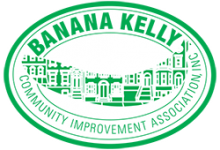By Harry DeRienzo
January 8, 2014 marks the 50th Anniversary of the “War on Poverty.” This milestone provides an opportunity to review and assess our accomplishments as well as our failures. As declared by the President later that year (1964), this war was designed to lead to a Great Society, a society the foundation for which “rests on abundance and liberty.” But what if abundance is undermined by removing the source of prosperity, namely access – to living wage jobs, to resources for self-employment, to technology – from the reach of our nation’s average citizens? Would that not destroy any prospect for winning such a war?
The War on Poverty rested on very basic assumptions. In order for there to be a “Great Society,” Americans must have already formed at the very least a decent society in which people were and would remain unified in purpose while possessing a shared sense of destiny. Operating from that assumption, new public support programs were designed to be complementary, not comprehensive and all encompassing. These programs sought to provide a “leg up” for those operating from a disadvantage (e.g. Head Start); to provide temporary assistance for those facing basic problems (e.g. Food Stamps), and to provide permanent assistance to the frail, disabled and elderly (i.e. Medicare). However, the absence of a unified society doomed the initiative to failure at the outset, while converting certain forms of temporary assistance into permanent programs, and opening up any such assistance to criticism for “failing” to eliminate poverty. The great American philosopher John Dewey viewed society as a single organism: dynamic, synergistic, promoting of human dignity and ever evolving. In contrast, our society is reactive, contrived, atomized, and de-humanizing, and from a democratic perspective, ever devolving.
If we review the political landscape for answers, we are met with complementary ideologies from our two political parties. From the right, we are told to cut taxes and eliminate regulations that hamper the “job-creators;” to “get government” out of our business and privatize traditional government functions. The problem with poor people is viewed as a lack of personal responsibility and any public support is seen as fostering long term dependency. From the so-called left, we are told we need to tax the rich (a bit more), extend benefits for the poor and disadvantaged, encourage mobility, and promote corporate globalization through free trade. So as the Republicans seek to liberate corporations from regulations, the Democrats seek to eliminate trade barriers and thereby centralize economic power in one, small class of citizens. Our two main political parties are little more than two sides of one coin. Milton Friedman ultimately prevailed in criticizing Democrats for stealing the term “liberal.” That purported theft has long since been redressed by the Democratic Party’s embrace of neo-liberalism, which destroys local economies while looking to extract some of the resulting private global windfall for minimal public support to those most affected by globalization.
So, do we need a new War on Poverty? Not exactly. What we need is a re-ordering of social priorities, a rejection of politicians who are little more than corporate sycophants, a re-defining of who we are as a nation, a revival of true cultural expressions, a restructuring of our economy and the natural altering of our political systems that would come from such a restructured economy. Otherwise, any War on Poverty would simply amount to printing money to benefit one segment of the population. [ooops – already doing that!]
